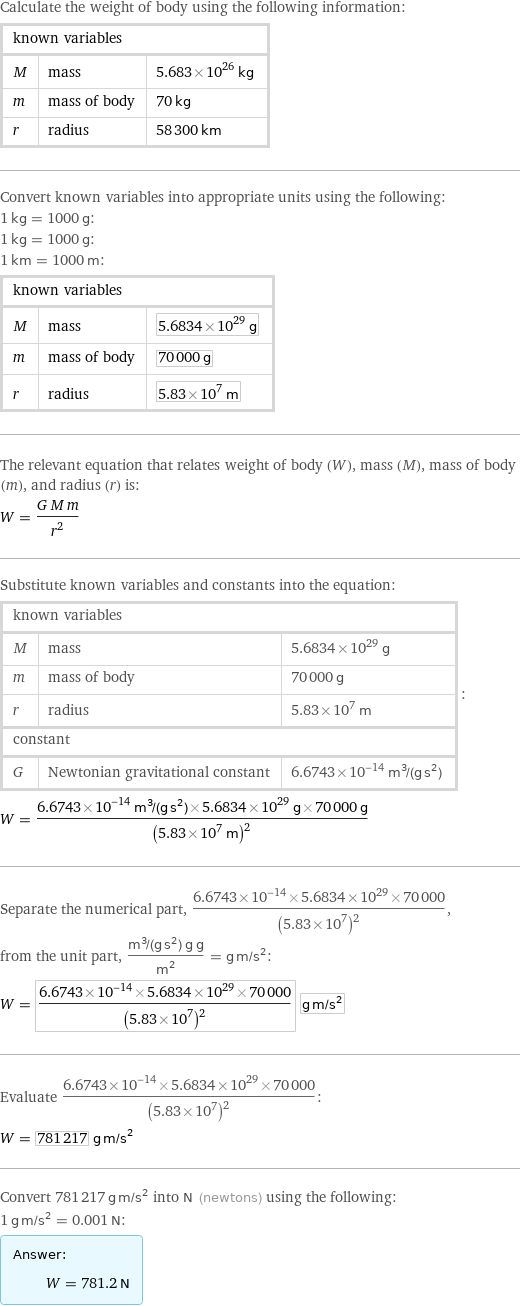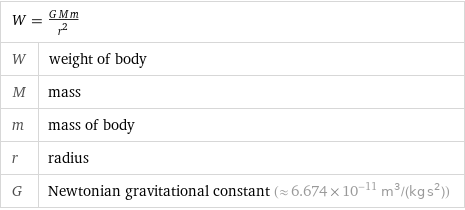Input information

weight on massive bodies | mass | Saturn (planet) (mass): 5.683×10^26 kg (kilograms) mass of body | 70 kg (kilograms) radius | Saturn (planet) (average radius): 58300 km (kilometers)
Results

weight of body | 781.2 N (newtons) = 175.6 lbf (pounds-force) = 0.7812 kN (kilonewtons)
Possible intermediate steps

Calculate the weight of body using the following information: known variables | | M | mass | 5.683×10^26 kg m | mass of body | 70 kg r | radius | 58300 km Convert known variables into appropriate units using the following: 1 kg = 1000 g: 1 kg = 1000 g: 1 km = 1000 m: known variables | | M | mass | 5.6834×10^29 g m | mass of body | 70000 g r | radius | 5.83×10^7 m The relevant equation that relates weight of body (W), mass (M), mass of body (m), and radius (r) is: W = (G M m)/r^2 Substitute known variables and constants into the equation: known variables | | M | mass | 5.6834×10^29 g m | mass of body | 70000 g r | radius | 5.83×10^7 m constant | | G | Newtonian gravitational constant | 6.6743×10^-14 m^3/(g s^2) | : W = (6.6743×10^-14 m^3/(g s^2)×5.6834×10^29 g×70000 g)/(5.83×10^7 m)^2 Separate the numerical part, (6.6743×10^-14×5.6834×10^29×70000)/(5.83×10^7)^2, from the unit part, (m^3/(g s^2) g g)/(m^2) = g m/s^2: W = (6.6743×10^-14×5.6834×10^29×70000)/(5.83×10^7)^2 g m/s^2 Evaluate (6.6743×10^-14×5.6834×10^29×70000)/(5.83×10^7)^2: W = 781217 g m/s^2 Convert 781217 g m/s^2 into N (newtons) using the following: 1 g m/s^2 = 0.001 N: Answer: | | W = 781.2 N
Equation

W = (G M m)/r^2 | W | weight of body M | mass m | mass of body r | radius G | Newtonian gravitational constant (≈ 6.674×10^-11 m^3/(kg s^2))
Units
